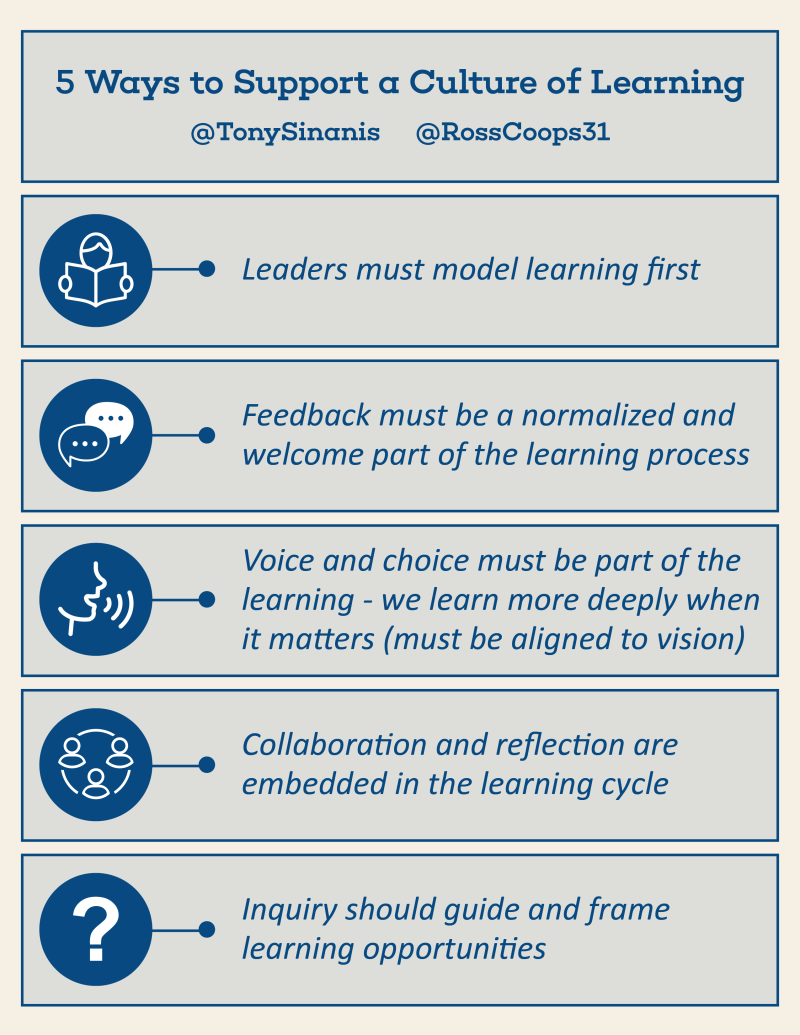Not too long ago, Tony Sinanis (Hastings-on-Hudson Superintendent) and I presented on 5 Ways to Support a Culture of Learning. One of the main points we discussed is how feedback must be a normalized and welcome part of the learning process. While conversations about feedback generally focus on what feedback is and isn’t, why it’s valuable, and how to give it, during our presentation Tony went out of his way to emphasize the idea of being mindful of how we respond to feedback. For instance, as an administrator, if I’m not accepting of feedback, I shouldn’t expect my teachers to listen to what I (and possibly, their peers) have to say. In other words, I need to model the behavior I want to see in others.
Confirmation Bias
The Oxford Dictionary defines confirmation bias as “The tendency to interpret new evidence as confirmation of one’s existing beliefs or theories.”
Confirmation bias (along with other factors, such as insecurity and ego) can prevent us from being accepting of feedback, and to a greater degree, disagreement.
In Creativity, Inc., Ed Catmull (author and President of Pixar) explains how confirmation bias can hinder an organization:
Most of us walk around thinking that our view is best – probably because it is the only one we really know. You’d think the fact that we all have major misunderstandings with people at times – squabbles over what was said or what was meant – would clue us in to the reality that so incredibly much is hidden from us. But, no. We have to learn, over and over again, that the perceptions and experiences of others are vastly different than our own. In a creative environment, those differences can be assets. But when we don’t acknowledge and honor them, they can erode, rather than enrich, our creative work.
5 Stages of Disagreement
Since our presentation, I’ve tried to be more cognizant of how I respond to any type of disagreement. And, based on my experiences (and my mistakes), I’ve mapped out five stages of disagreement. All of the stages, with the exception of the fifth (the “highest”), involve some form of confirmation bias.
When looking at these stages, if you’re self-evaluating, ask yourself, “What is my default reaction to disagreement?” (And then maybe think about whether or not your colleagues would agree with your self-evaluation.)
[Read more…] about What Is Our Default Reaction to Disagreement?











